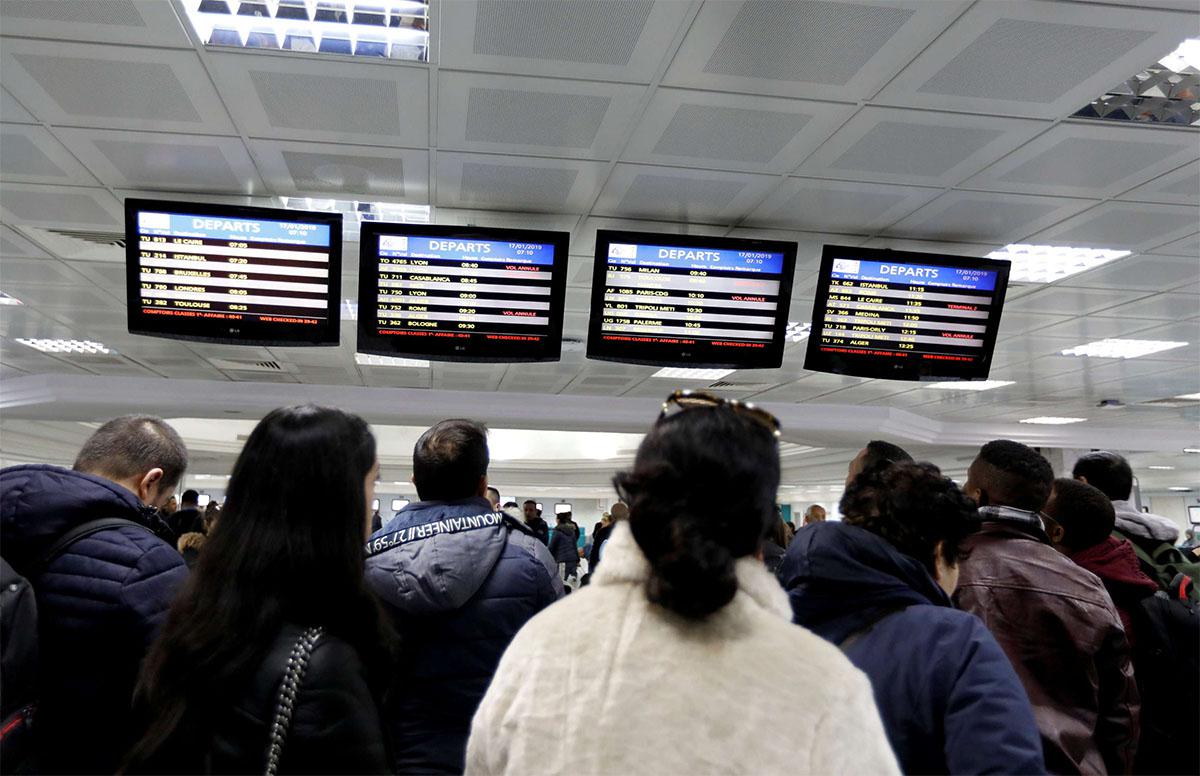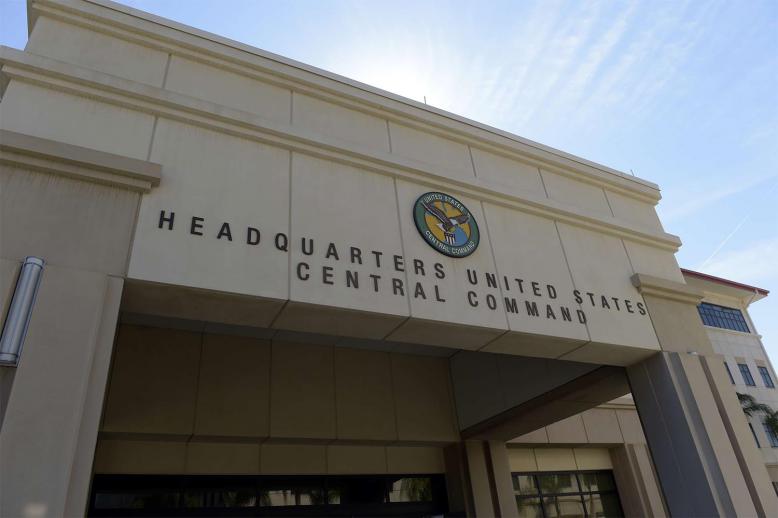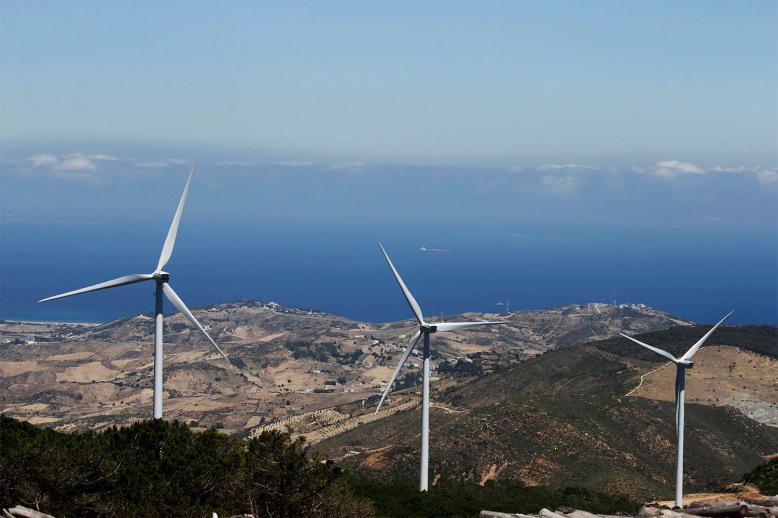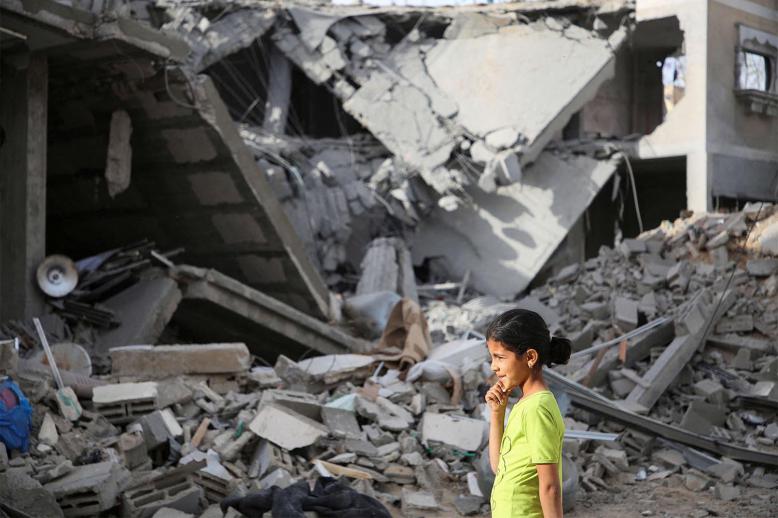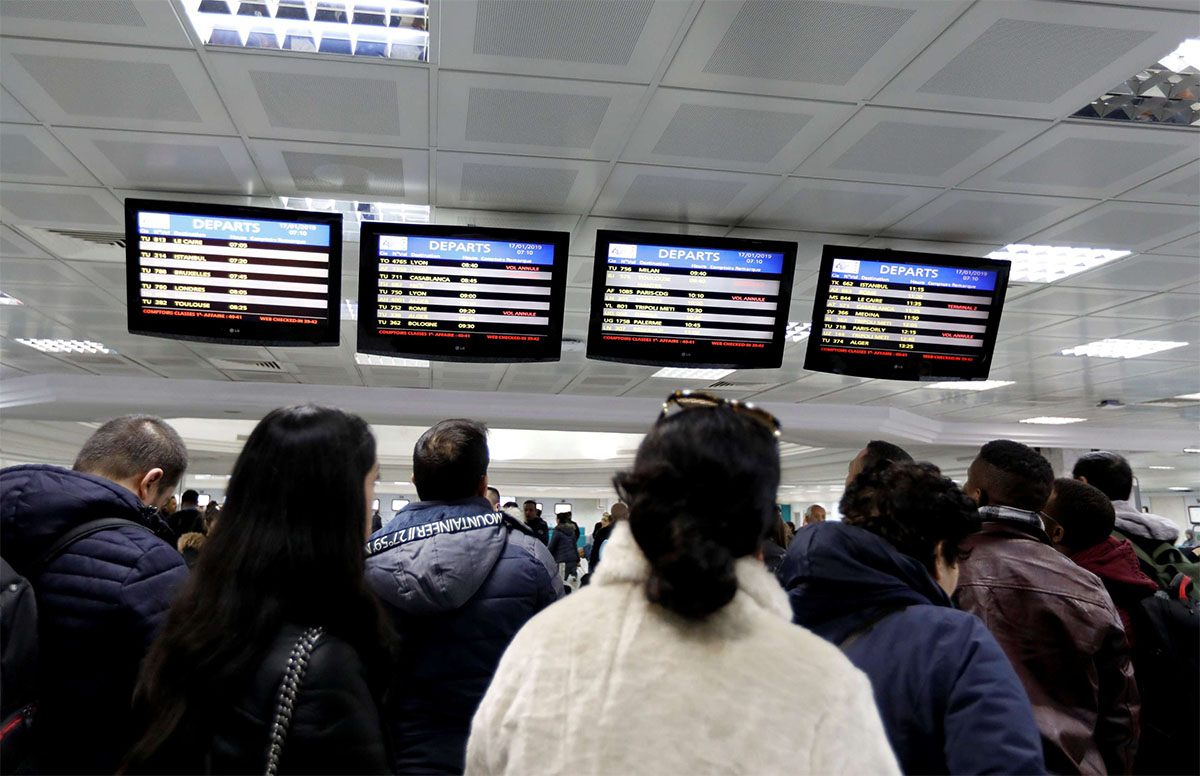Tunisia's largest union stages strike as PM warns of cost
TUNIS - Rail, bus and air traffic stopped in Tunisia and street protests drew thousands on Thursday as the huge UGTT union staged a one-day nationwide strike to challenge the government's refusal to raise the salaries of 670,000 public servants.
The strike was the biggest since the assassination of opposition politician Chokri Belaid in February 2013, when Tunisia was navigating a rocky transition to democracy after the toppling of autocrat Ben Ali two years earlier.
The North African country has since adopted a constitution guaranteeing fundamental rights and holding free elections, making it the only "Arab Spring" country to avoid conflict as in Syria or further bouts of political turmoil like Egypt.
An economic crisis has eroded living standards for Tunisians, however, and unemployment is high as political turmoil and lack of reforms have deterred investment needed to create jobs. That has forced the government to launch austerity measures to please donors and lenders including the International Monetary Fund.
"The government have chosen the confrontation with the public servants and we are ready," UGTT leader Nourredine Taboubi told thousands of people gathered in front of UGTT headquarters on Thursday.
"We will study on Saturday the next steps and we will step up our action and will not back down", he added without giving details on a possible escalation.
Protesters outside the UGTT HQ and in the capital's Habib Bourghiba Avenue called for salary hikes.
"The people want the overthrow of the government", "Power belongs to the people", they chanted -- slogans used in 2011 when protests against Ben Ali began the "Arab Spring".
Police showed a strong presence but did not interfere.
Other cities also saw protests, including Sidi Bouzid, the cradle of the 2011 revolution, Gafsa, Jendouba and Sfax.
The one-day strike which started at midnight hit airports, ports, schools, hospitals, state media and government offices. At Tunis Carthage airport, most flights were cancelled and check-in counters closed, leaving hundreds of angry passengers stranded after Tunisia's state-owned airline Tunisair had urged customers to change their bookings.
Tunisia is under pressure from the IMF to freeze public sector wages -- the bill for which doubled to about 16 billion dinars ($5.5 billion) in 2018 from 7.6 billion in 2010 -- as part of measures to reduce its budget deficit.
The public sector wage bill has doubled to about 16 billion dinars ($5.5 billion) in 2018 from 7.6 billion in 2010.
But the UGTT says the monthly average wage of about $250 is one of the lowest in the world, while the state Institute of Strategic Studies says real purchasing power has fallen by 40 percent since 2014.
Tunisia's prime minister said on Wednesday that the nationwide strike would be very expensive but the government could not raise wages disproportionately to the state's ability to afford it.
"We proposed an important raise in wages but it was rejected by UGTT, the nationwide strike will be very expensive but we can not give more than our financial capabilities," Youssef Chahed said in speech.
He added that the increase asked for by UGTT would boost inflation and would lead to more borrowing or higher taxes.
Sami Tahri, Deputy Secretary-General of the UGTT, said the government had opted for a confrontation with public servants in a bid to meet the IMF's demands.
Government spokesman Iyad Dahmani said the state did not have the funds to pay more for public employees -- any increase would lift annual inflation to 10 percent from 7.4 percent now.
Government and union sources said the government had proposed spending about $400 million on pay rises whereas the UGTT had asked for about $850 million. The government aims to cut the public sector wage bill to 12.5 percent of gross domestic product in 2020 from the current 15.5 percent, one of the world's highest levels according to the IMF.
Tunisia struck a $2.8 billion loan deal with the IMF in December 2016. The programme aims to overhaul its ailing economy with steps to cut chronic deficits and trim bloated public services, but progress has been slow.
Tunisia's economy has been in crisis since the toppling of Ben Ali in 2011 threw it into turmoil, with unemployment and inflation shooting up.

